
Toward the beginning of 2023, I finally ventured into a genre that I had previously left untouched — classic-style turn-based RPGs, especially those made or inspired by Japanese creators. At the time, it seemed obvious which game I should choose as my first foray into turn-based JRPGs, with Octopath Traveler from Square Enix seemingly universally beloved by its players.
Fast forward a grueling 30 hours later, and I officially gave up on finishing Octopath Traveler. I very rarely decide not to finish games that I've committed to (and when I do, it's usually because of game-breaking bugs, like with Turnip Boy Commits Tax Evasion), but I simply couldn't force myself to slog through Octopath Traveler. The experience led me to avoid attempting another, similar turn-based RPG for months until Chained Echoes announced its imminent departure from Xbox Game Pass.
Okay, here we go again...
Falling out of love with Octopath Traveler
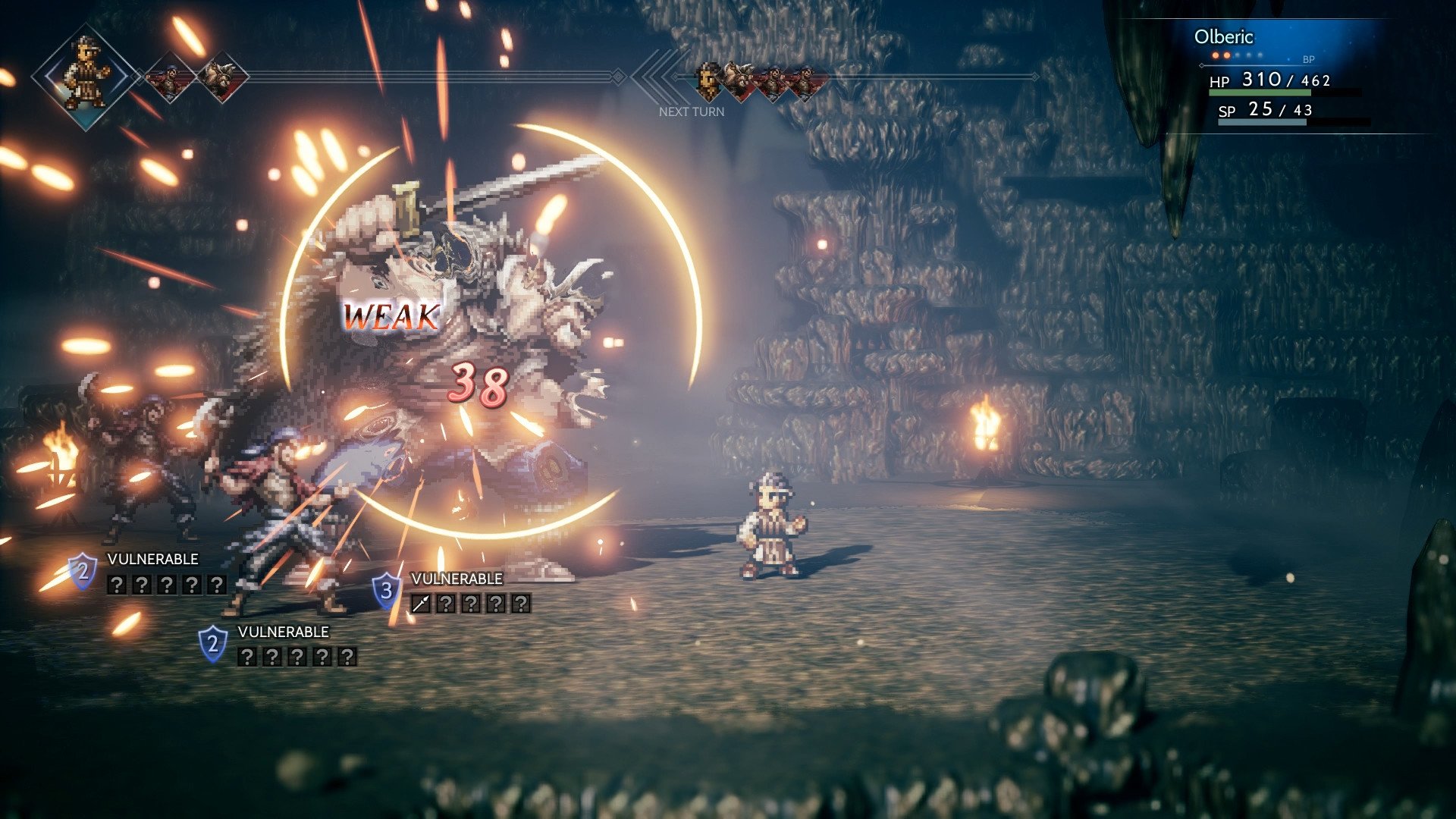
• Price: $24.99 at Microsoft (Xbox & PC) | $24.99 at GOG (PC)
• Release date: Dec. 8, 2022
• Developer: Matthias Linda
• Publisher: Deck13 Spotlight
• Genre: Turn-based RPG
• Players: Single-player
• Install size: ~1GB
• Playtime: 30-40 hours
• Platforms: Xbox Series X|S, Xbox One, Windows PC, PlayStation 4|5, Nintendo Switch
• Xbox Game Pass: No (left Dec. 15, 2023)
• Played on: Xbox Series X
Immediately after starting Octopath Traveler, I was struck by its stunning visuals inspired by classic SNES pixel art but with a heap of extra polygons. Cinematics, environments, and character designs were all immaculate, and I was drawn in based on that alone. After I began learning the ins and outs of the game's turn-based combat, I was intrigued and kept interested by the learning process itself. Diving into a brand-new universe further helped me get hooked on Octopath Traveler, which I was playing via Xbox Cloud Gaming on the Logitech G Cloud at the time.
This was all more than enough for the first 10-15 hours of Octopath Traveler when I played regularly and for hours at a time. At that point, though, fatigue began to set in. The combat had already begun to grow stale thanks to what felt like limited interaction between abilities, the never-ending stream of random and unpredictable battles, and the tedium of constantly managing health and mana levels between every fight; the overarching story of eight separate, barely touching tales continually failed to maintain my interest with inconsistent stakes and bland writing; the reality of the game's length became increasingly daunting, causing me to feel exhausted by the 30-hour mark.
When I realized I was less than halfway through the game, I strongly considered giving up entirely. After I brutally lost a boss fight that sent me back an hour of playtime, that was the final straw. I set down my G Cloud and never returned to Octopath Traveler (shortly after that, it left Xbox Game Pass, and I certainly wasn't going to buy it). I hadn't written off this genre of games entirely, as I installed both Sea of Stars and Chained Echoes with the intention of visiting them eventually. I did move on to other games for almost the duration of 2023, though — That is, until I learned that I had just three weeks to try Chained Echoes before it left Xbox Game Pass.
A world that actually feels interesting and connected
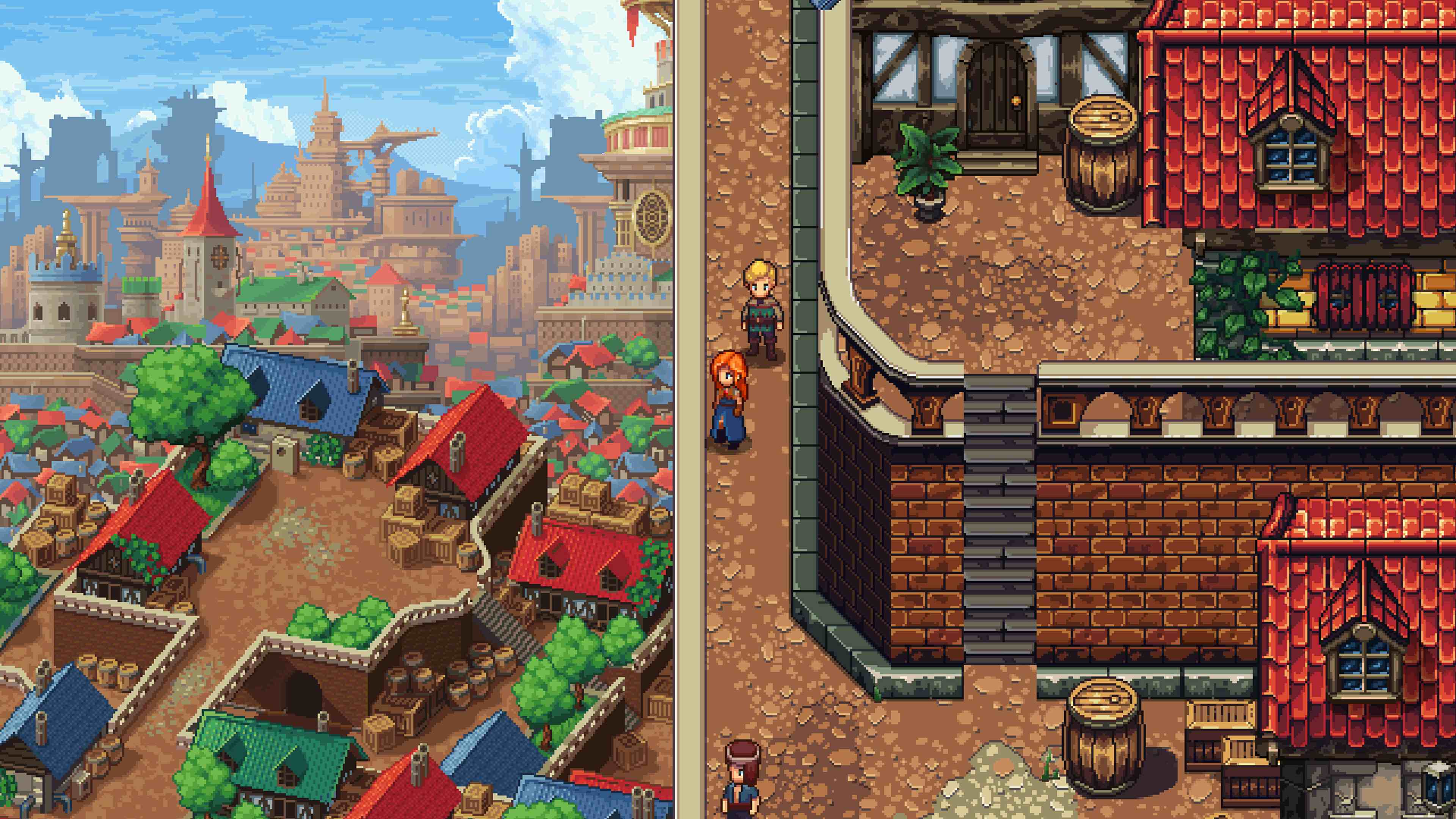
Right off the bat, I felt more attached to the world of Chained Echoes than that of Octopath Traveler. Valandis and Osterra both boast colorful histories and diverse, distinct regions with unique peoples and cultures, but Chained Echoes does a far better job of easing you into its world than Octopath Traveler. Neither game has meaningfully better writing, but I appreciated how Chained Echoes didn't always take itself too seriously and was willing to let its characters have silly, throwaway moments.
I adored learning about Valandis and the wider world in Chained Echoes, diving into the bloodied history books detailing the centuries-old war between three tired kingdoms. More than that, though, I loved each of the characters I met in Chained Echoes. Octopath Traveler is most known for its eight-pathed narrative (hence the name) that brings together eight entirely different people together. However, the connections between Octopath Traveler's playable characters feel almost superficial, with little to no meaningful connections between them.
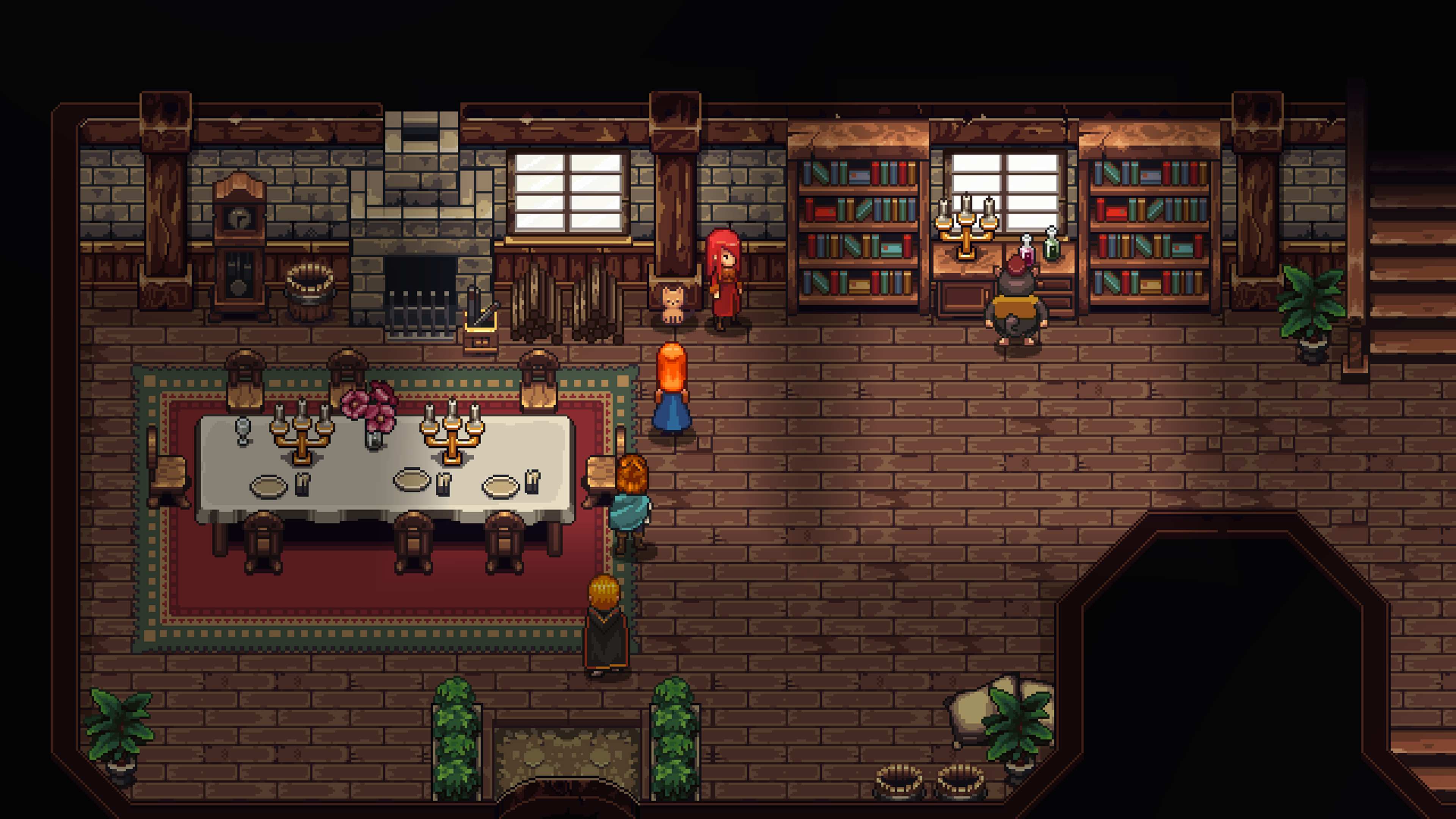
Where Octopath Traveler focused entirely on eight separate missions for each character, Chained Echoes introduces you to new characters before tying them into the main game and each other. The world, characters, and narrative all feel more interconnected than Octopath Traveler ever feels, and that alone was enough to keep me interested through the entire campaign. More than that, Chained Echoes doesn't punish you for preferring to play as some characters more than others — Everyone becomes stronger at once, giving you flexibility when finding your unique playstyle.
Above all of that, Chained Echoes' story is somehow more epic and more focused than Octopath Traveler. Granted, I never finished it, but it shouldn't take 30 hours for any game to gain a significant level of cohesion. Chained Echoes did a brilliant job slowly raising the stakes and bringing in new information, new obstacles, and new reasons to motivate you to keep playing. I ultimately really enjoyed the campaign for Chained Echoes from start to finish, while I can't look back at Octopath Traveler and say I enjoyed its story very much at all (a few characters stood out, but that's all).
Exciting combat that stayed fresh for dozens of hours
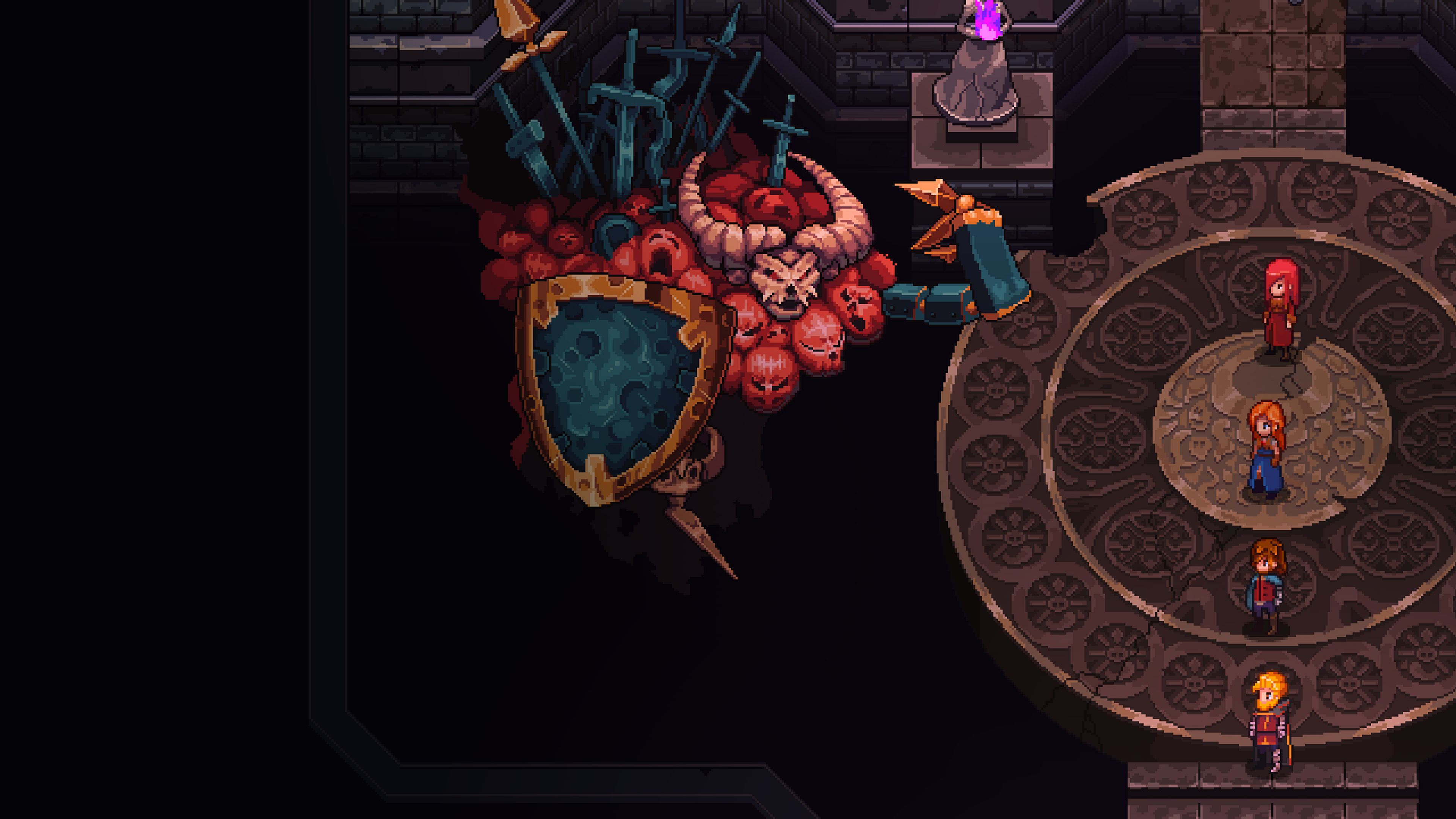
Then there's the gameplay. This is another area where I found Chained Echoes to be considerably more enjoyable in almost every respect. I enjoyed Octopath Traveler's turn-based combat at first, especially when it came to parsing the weaknesses of each enemy type, but it quickly became exhausting. Interplay between characters felt lacking, combat became repetitive far too quickly, constantly stressing over character health and mana levels between every fight was never fun, and the game had a tendency to randomly throw surprise battles at you every couple of feet. That last point felt more like an attempt to flesh out the game length than actually interesting gameplay and is a big reason I grew bored.
Chained Echoes, in comparison, forces you to rely heavily on the varied abilities of each character (and lets you quickly swap between them, meaning you can actually use up to eight characters at a time). It keeps combat interesting with its myriad of unique abilities and the existence of two totally different types of battles (foot battles and Sky Armor battles). Oh, and there's the clever Overdrive system, which rewards you for mixing up your strategies and using different moves instead of spamming the same skills over and over. Your characters also grow in strength simultaneously and completely heal after every fight (the fights themselves are difficult enough at full health), so you don't have to stress over tedious, pointless character management.
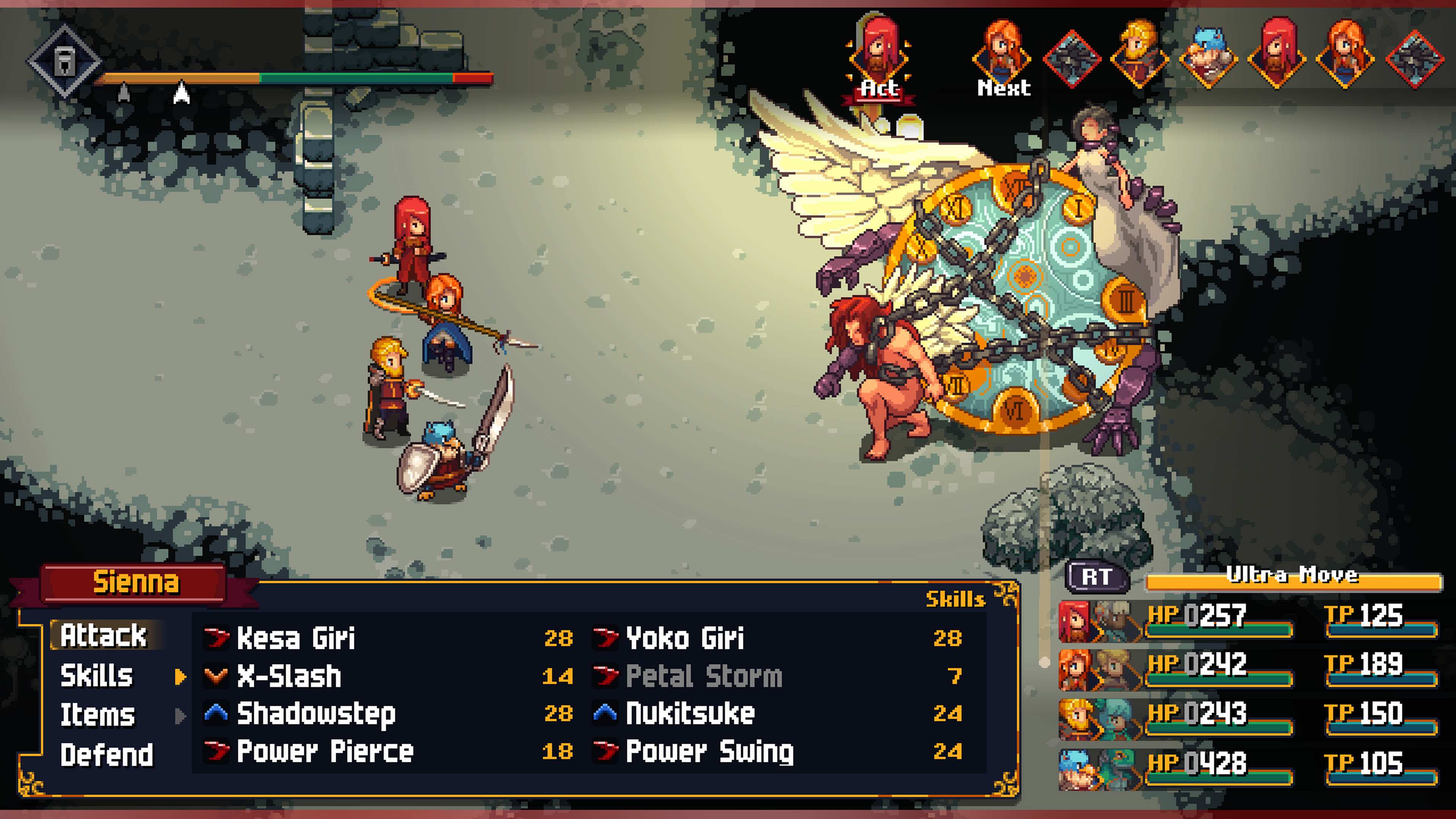
The biggest positive change, though? All of Chained Echoes' enemies are visible in the world, and you have to voluntarily engage in battle with them. There are no surprise battles every five seconds — You choose when to fight, and you can even often avoid enemies entirely. It's a refreshing level of agency after Octopath Traveler, and I never once felt like I wasn't in combat often enough (surprise, surprise).
Just to throw in some other great parts of Chained Echoes: Crystals and equipment upgrades give you a ton of ways to customize each character (I made Sienne a critical attack specialist that dealt huge amounts of physical damage, for example), a ton of accessibility options let you finetune the difficulty of the game so that anyone can play, and Chained Echoes uses enemy skills and abilities to mix up the difficulty of battles instead of relying on hidden weaknesses and arbitrary amounts of armor. Over 30 hours in, Chained Echoes still felt interesting in each fight, where Octopath Traveler felt tiring after just 10.
I've not even touched on all the secrets scattered across Chained Echoe's world, the more interesting and clear side quests, the superior world navigation... I could go on, but I'll wrap this up.
Chained Echoes should've been my introduction to the genre
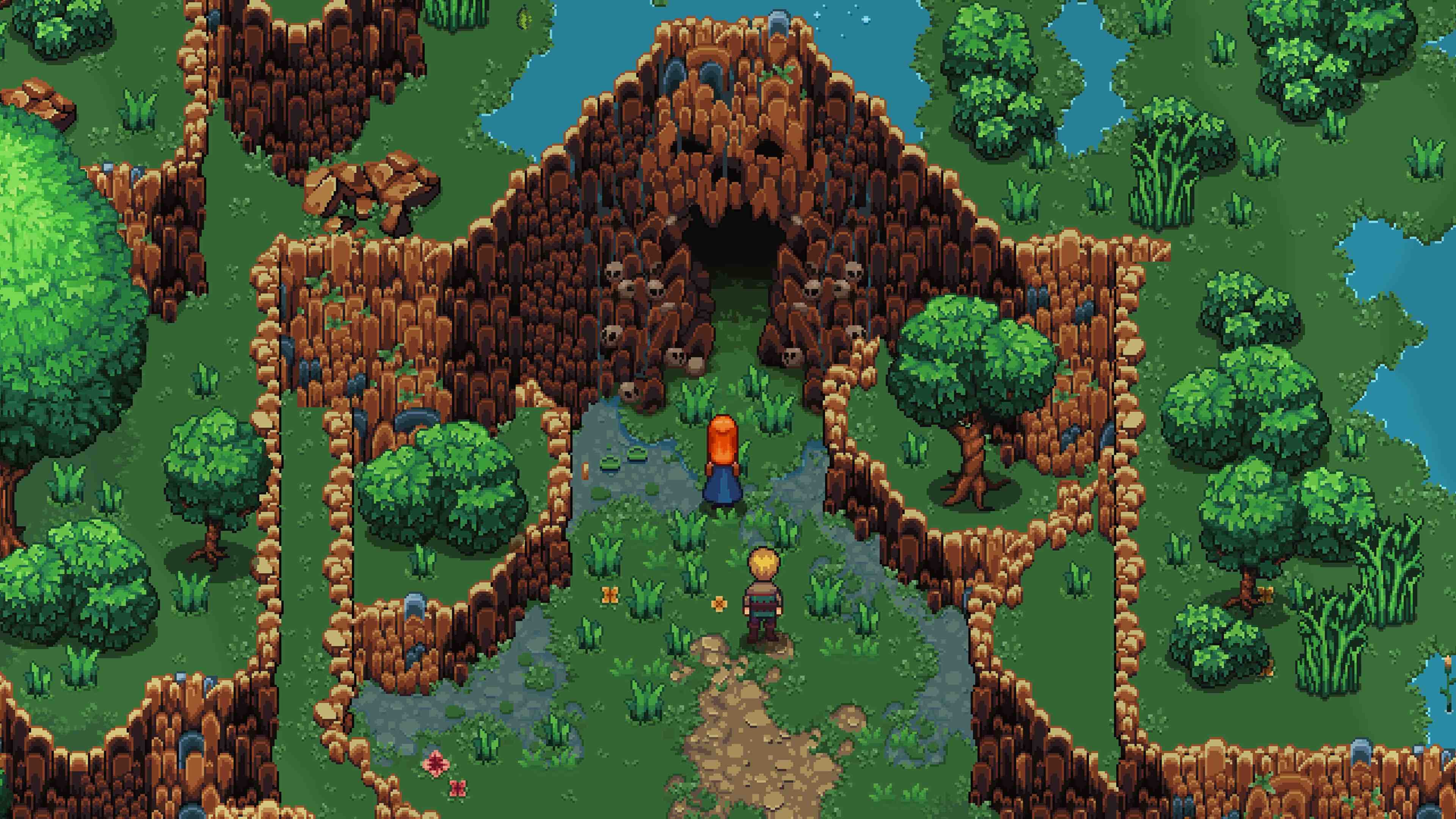
Chained Echoes is an amazing turn-based RPG that's clearly made with passion and attention to detail as the ultimate love letter to the classics that came before it. I had an incredible time with it despite its length (30 hours is just a long game), and I strongly recommend you go play it. If you have nostalgia tying you to the genre, it'll probably be even better than it was for me as a newcomer who's still exploring what makes these games so compelling.
I'd tell you to go play Chained Echoes via Xbox Game Pass, but the title's departure from Xbox's subscription service is what led me to play it. Chained Echoes is 100% worth the $24.99 at Microsoft, though (it's also Xbox Play Anywhere, so you can buy it once for Xbox and PC). It boasts style and grandeur, a believable world and fantastic characters, interesting and varied combat, plenty of secrets, and all the improvements modern game design can bring to this long-running genre. I wish it had been my introduction to the turn-based JRPG (or JRPG-inspired) genre because if it had, I would've been lining up to play Sea of Stars on day one. Octopath Traveler set me back months, though, so now I have some catching up to do. Oh, if I didn't make myself clear — Chained Echoes made me very excited to play Sea of Stars in the near future, along with any other great classic-inspired turn-based RPGs I can find.
Chained Echoes is one of the best games on Xbox right now. Still don't believe me? Check out our Chained Echoes review from Windows Central's Cole Martin for our take on this wonderful game.







